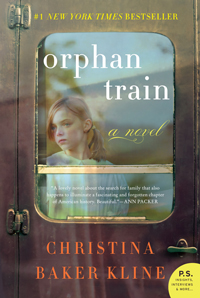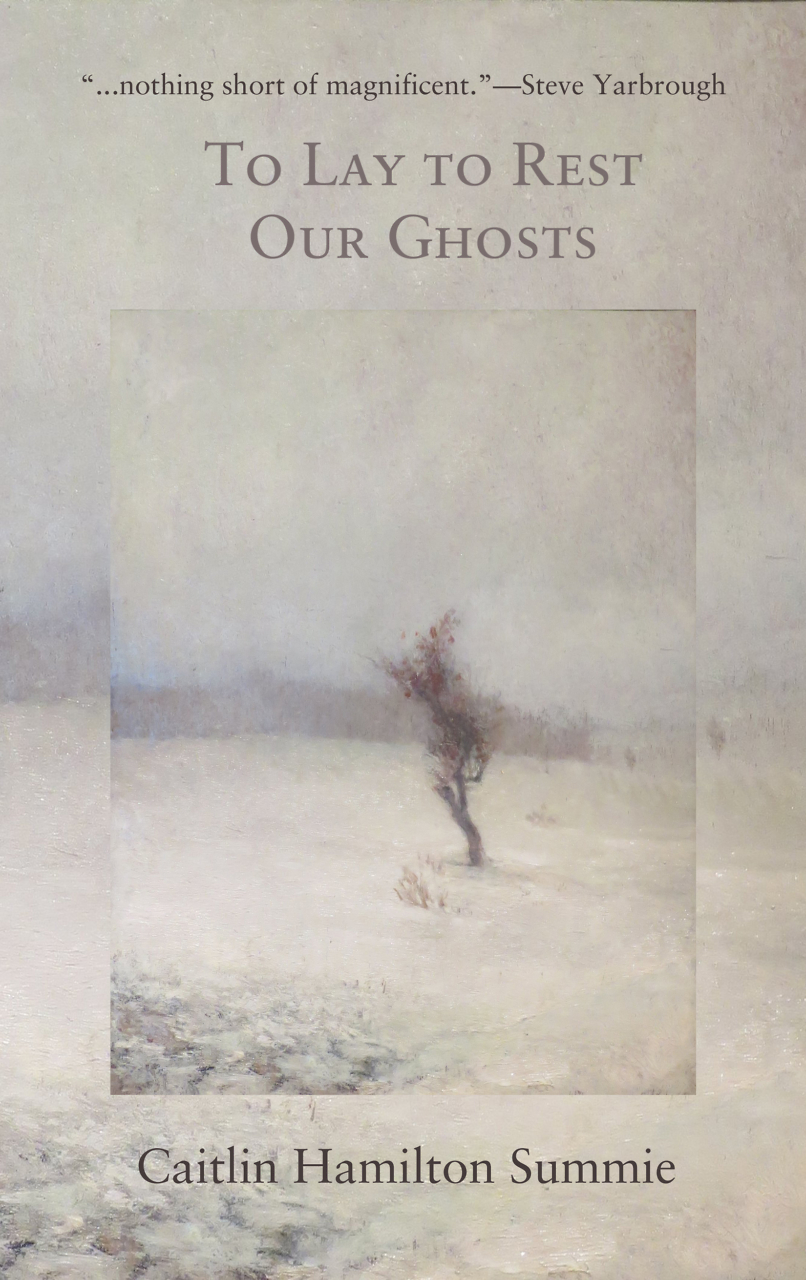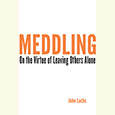Unpacking the Past
Christina Baker Kline binds youth and age in a story of survival
Molly, one of the two protagonists in Christina Baker Kline’s Orphan Train, is a rebellious teenager who’s been shunted through Maine’s foster-care labyrinth from one uncaring family to the next. She masks her pain in Goth makeup, studs, and hair dye and her intelligence in sullen silence. When she is caught stealing a tattered copy of Jane Eyre from the school library, she must complete fifty hours of community service or be sent to juvenile detention. She’d almost prefer juvie, but her boyfriend finds someone willing to take her on for the hours—ninety-one-year-old Vivian Daley, who needs help cleaning out the attic of her grand Victorian house.
 In history class, Molly is assigned a “portage project” based on the need to travel light in some nomadic Native American societies. Tribes that moved overland from one waterway to another had to carry their canoes and household goods. Making good decisions about what to take and what to leave behind was key to successful relocation. Assigned to interview an older person about such a crisis and lacking an older relative, Molly decides to interview Vivian.
In history class, Molly is assigned a “portage project” based on the need to travel light in some nomadic Native American societies. Tribes that moved overland from one waterway to another had to carry their canoes and household goods. Making good decisions about what to take and what to leave behind was key to successful relocation. Assigned to interview an older person about such a crisis and lacking an older relative, Molly decides to interview Vivian.
The project causes Vivian to open the lid on a story she has packed away for decades. As the interview unfolds, she unearths her earliest memories of the hard and lonely life of an Irish immigrant child in the slums of New York, with a drunken father, a depressed mother, and a fire that carries away her entire family. A grandmother back in Ireland remains, and yet the nine-year-old has no way to return to her: “There is no adult on this side of the Atlantic who has reason to take any interest in me, no one to guide me onto a boat or pay for my passage. I am a burden to society, and nobody’s responsibility,” the girl realizes when a neighbor refuses to take her in and sends her instead to an orphanage.
From the ruins of that tragedy, she is swept up by the orphan train, a Children’s Aid Society experiment that from 1854 until 1930 scraped 200,000 homeless urchins off the streets of New York and other Eastern cities and sent them to the Midwest for informal adoption. The arrangement often meant poverty and degradation—no better, if different, than what the children left behind. At the auctions of children on Midwestern train platforms, babies were chosen first. The strongest boys were needed for backbreaking (and unpaid) farm labor. Girls were taken last to help harried pioneer women cook, sew, and care for endless children. Children’s Aid requirements that the orphans be sent to school and treated kindly were routinely ignored or evaded.
In delicate, unemotional prose, Kline tells the young Irish girl’s story as she loses everything, even her name, passing from family to family and retaining only a cross she was given by her grandmother. Although Molly and Vivian appear to have little in common, they discover as they sort through the boxes in the attic that they share profound emotional scars. Kline explores how both women adapt to their circumstances by locking trauma in the depths of their hearts and adopting identities demanded by the capricious adults in their lives, living as carefully as possible and avoiding intimacy:

When Vivian describes how it felt to be at the mercy of strangers, Molly nods. She knows full well what it’s like to tamp down your natural inclinations, to force a smile when you feel numb. After a while you don’t know what your own needs are anymore. You’re grateful for the slightest hint of kindness and then, as you get older, suspicious. … And so your personality is shaped. You know too much, and this knowledge makes you wary. You grow fearful and mistrustful. The expression of emotion does not come naturally, so you learn to fake it. To pretend. To display an empathy you don’t actually feel. And so it is that you learn how to pass, if you’re lucky, to look like everyone else even though you’re broken inside.
Orphan Train is Kline’s fifth novel—following Sweet Water, Desire Lines, The Way Life Should Be, and Bird in Hand—and her first to hit bestseller lists. She is also the author or co-author of four nonfiction books concerned with parenting and feminism. It is easy to see why this novel catapulted Kline to bestseller status. Orphan Train is a riveting tribute to the thousands of children who rode those trains to their uncertain destinies. At the same time, it is a clear-eyed exploration of the scars that neglected, abused, and abandoned children bear for life.

Lyda Phillips is a veteran journalist who grew up in Memphis and has earned degrees from Northwestern, Columbia, and Vanderbilt universities. The author of two young-adult novels, she worked for United Press International before returning to Nashville.


